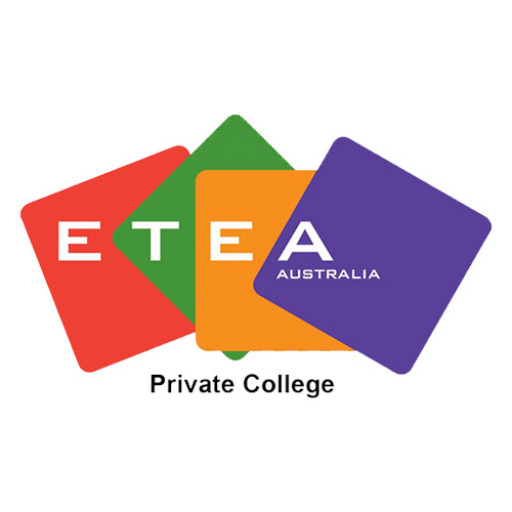Community Services is a comprehensive qualification designed to equip students with the practical skills, knowledge, and understanding necessary to support individuals and communities in various social, health, and welfare settings. This program covers a wide range of topics, including human development, counselling, community engagement, and support work, preparing graduates to make a positive impact in their communities. Throughout the course, students will learn about the principles of social justice, cultural diversity, and ethical practice, ensuring they can work effectively and respectfully with diverse populations. The curriculum combines theoretical learning with practical applications, including supervised work placements that allow students to gain real-world experience in community services environments such as aged care facilities, youth services, mental health clinics, and disability support agencies. By completing this program, graduates can pursue careers in numerous sectors, including aged care, disability support, youth and family services, mental health support, and community development. The qualification is designed to meet industry standards, providing learners with the competencies required to assist individuals in achieving their personal goals and improving their quality of life. It also emphasizes the development of professional communication, teamwork, and problem-solving skills, which are vital in dynamic and sensitive settings to ensure effective support and positive outcomes for clients. Suitable for those passionate about helping others and making a difference in society, this program prepares students to enter the workforce with confidence and a strong foundation in community service practices. Whether students are starting their careers or seeking to upskill, the Community Services program offers a flexible pathway to meaningful employment and ongoing professional development.
Community Services programs offered by Education Training & Employment Australia Pty Ltd are designed to equip students with the essential skills and knowledge needed to make a positive impact in their communities. This comprehensive course covers a wide range of topics, including understanding community development, providing effective support to individuals and families, and fostering social inclusion. Throughout the program, students will learn about diverse community services, social welfare policies, and ethical standards essential for working in the sector. The curriculum emphasizes practical skills through hands-on training, case studies, and real-world scenarios, preparing graduates to work confidently in various settings such as community centers, support agencies, and outreach programs. Students will develop communication, problem-solving, and teamwork skills, which are crucial for engaging with clients and collaborating with multidisciplinary teams. The program also addresses issues related to mental health, disability services, and youth work, reflecting the current needs of communities. Upon completion, graduates will be equipped to assist individuals in accessing necessary resources, advocate for social justice, and promote community well-being. Whether pursuing a career as a community support worker, youth worker, or case manager, this program provides a solid foundation for a rewarding career dedicated to social service and community development. The flexible delivery options include face-to-face classes, online study, and blended learning, allowing students to choose the mode that best suits their lifestyle. The program is designed to meet industry standards and is aligned with national competencies, ensuring graduates are job-ready and able to contribute effectively to community services organizations. By joining this program, students will become part of a vibrant learning environment focused on social impact and personal growth, gaining the skills needed to support and empower diverse populations across various community settings.
The Community Services qualification typically requires students to complete a comprehensive curriculum that covers a broad range of skills and knowledge essential for working effectively within diverse community settings. The program focuses on developing practical skills in areas such as client assessment, case management, communication, cultural competence, and ethical practice. Students are often expected to engage in both theoretical learning and hands-on practical placements to ensure they are well-prepared for employment in community services roles, including support worker, case officer, or community development officer. The program generally includes core units such as working with diverse populations, safeguarding and safeguarding practices, advocacy, and community development principles, all designed to foster a holistic understanding of community needs and service delivery. Entry requirements may include a minimum educational background, such as completion of high school or equivalent qualification, and may sometimes require a background check or relevant work experience. Assessment methods typically comprise written assignments, practical demonstrations, reflective journals, and practical placement reports to evaluate students' understanding and application of community services principles. Throughout the program, students are expected to demonstrate strong ethical standards, cultural sensitivity, and the ability to work collaboratively within multidisciplinary teams. Upon successful completion of all components, students are awarded a nationally recognized qualification that qualifies them to work in various community-based roles. The program emphasizes ongoing professional development and the importance of adhering to regulatory standards within the community services sector. Overall, the curriculum aims to produce competent, compassionate, and ethical community service practitioners capable of supporting individuals and communities facing diverse challenges.
The financing of Community Services programs typically involves a combination of government funding, student contributions, and potential financial assistance options. Governments at federal, state, and local levels often subsidize vocational education and training (VET) courses, including Community Services, to promote workforce development and community support initiatives. These subsidies may cover a significant portion of the tuition fees, making the programs accessible to a broader range of students. In Australia, students may be eligible for financial assistance through schemes such as the Commonwealth Supported Places (CSP), which reduce the cost of tuition if they meet certain criteria, including residency status and previous study history. Additionally, income-tested government loans like the VET Student Loans program can help eligible students finance their studies, allowing them to defer payment until they are employed or exceed a specified income threshold.
Private funding sources may also be available, especially for international students or students seeking part-time study options. Many students finance their education through personal savings, family support, or private scholarships offered by community organizations or the institution itself. The cost structure of a Community Services program typically includes tuition fees, which can vary depending on the level of the qualification (certificates, diplomas, or advanced diplomas) and the delivery method (online, on-campus, or blended learning). Additional costs, such as textbooks, uniforms, and placement expenses, are also factors in budgeting for the program.
Financial planning for students is often supported through counseling services provided by the educational institution, helping them understand the available options and plan their finances accordingly. Many institutions recommend early application for government assistance programs and encourage students to explore scholarship opportunities to offset costs further. Overall, the financing landscape for Community Services studies aims to make education accessible while supporting students through diverse funding avenues, ensuring that financial barriers do not hinder entry into this vital sector dedicated to improving community wellbeing.
Community Services is a vital field focused on supporting individuals, families, and communities to enhance their well-being and quality of life. The program offered by Education Training & Employment Australia Pty Ltd provides students with foundational knowledge and practical skills necessary for a career in various community service roles. These roles may include working as a community support worker, family support worker, youth worker, or in other positions that require assisting vulnerable or marginalized populations.
The curriculum typically covers topics such as supporting clients with complex needs, effective communication, ethical practices, and cultural competency. Students learn to plan, implement, and evaluate community programs and services tailored to diverse cultural and social backgrounds. The program emphasizes practical learning through work placement opportunities, enabling students to gain real-world experience and establish professional networks within the community sector.
Participants will be trained to adhere to legal and ethical standards, promote social inclusion, and work collaboratively with multidisciplinary teams. The program also emphasizes the importance of resilience, empathy, and active listening in providing person-centered support. Graduates of this program are prepared for entry-level positions across various community settings, including local government agencies, nonprofit organizations, healthcare facilities, and educational institutions.
The qualification obtained upon completion is designed to meet industry standards and may be recognized for further study or certification. As community services is a growing field given increasing social challenges and policy shifts, this program offers a meaningful career pathway dedicated to making a tangible difference in people's lives. The duration of the program, entry requirements, and delivery mode (such as full-time, part-time, or online学习) can vary but generally include a combination of classroom learning and hands-on practical experience.
Overall, the Community Services program aims to equip students with the necessary skills to effectively support diverse community needs, uphold ethical standards, and contribute positively to societal well-being. It prepares graduates not only to find employment but also to build a career dedicated to social betterment and compassion-driven service.









